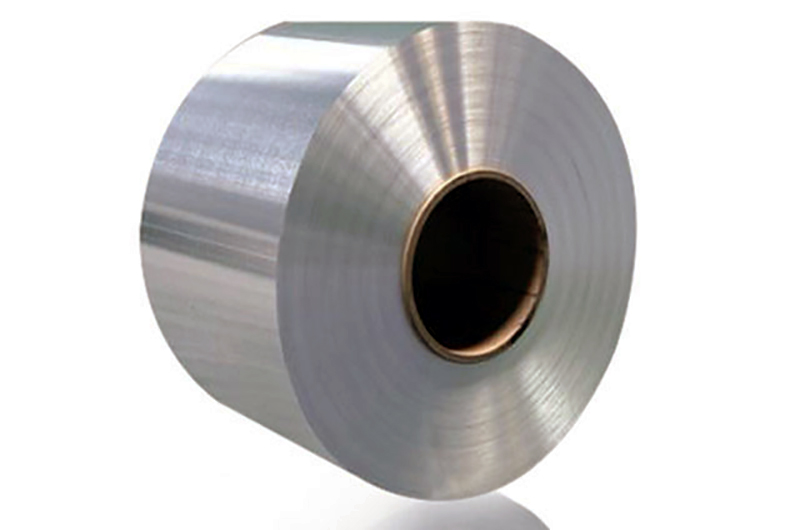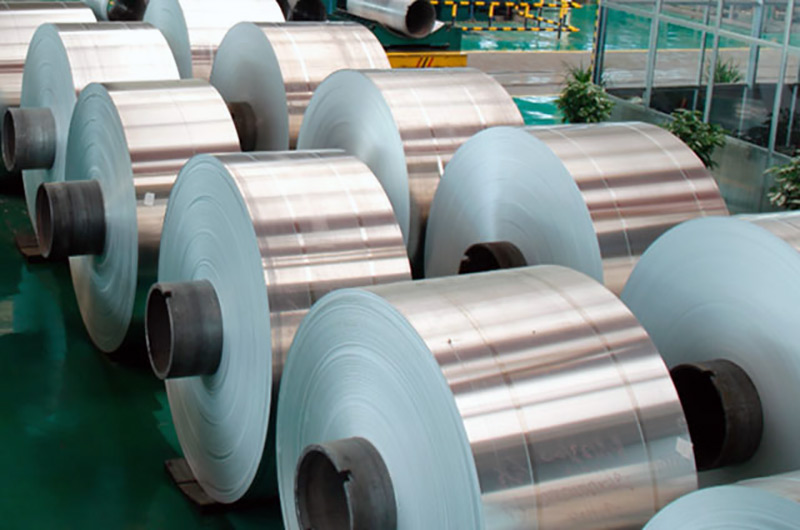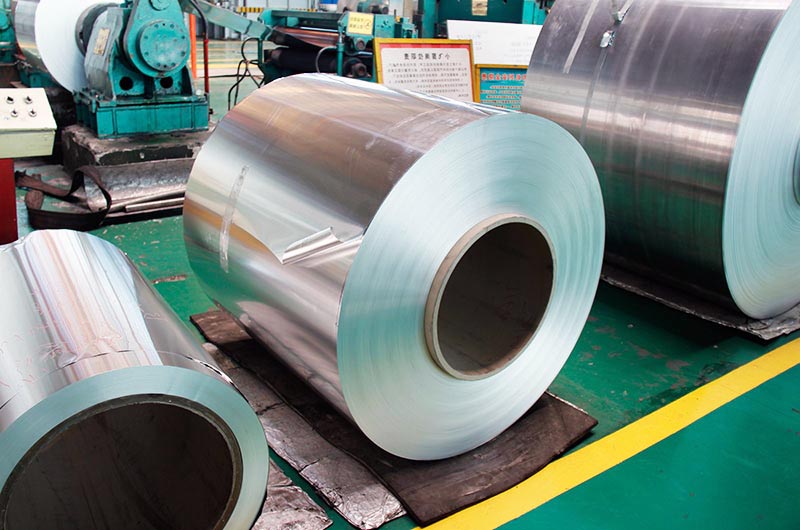Aluminium Roofing Coil Introduction
Roofing is an essential aspect of any building, providing protection from the elements and enhancing the structure's aesthetic appeal. While various materials are available for roofing, aluminum roofing coils have gained popularity in recent years due to their remarkable properties and versatility.
In this comprehensive article, we will explore the world of aluminum roofing coils, discussing their advantages, disadvantages, applications, alloy choices, surface treatments, commonly used thicknesses, specific application examples, common challenges in use, and much more.

Alloys Used for Aluminum Roofing Coil
3004 Aluminum Roofing Coil
The 3004 aluminum alloy is a common choice for roofing applications. It offers excellent corrosion resistance, formability, and strength, making it suitable for various roofing profiles and styles. Its alloying elements include manganese, which enhances its strength and workability.
3105 Aluminum Roofing Coil
The 3105 aluminum alloy is another alloy commonly used in roofing. It is known for its high resistance to corrosion and its formability. This alloy typically includes a small amount of magnesium, which further enhances its corrosion resistance.
Surface Treatments for Aluminum Roofing Coil
Paint Coatings Aluminum Roofing Coil
Aluminum roofing coils can be coated with high-quality paint finishes. These coatings not only add an attractive finish to the roof but also provide an additional layer of protection against environmental factors, such as UV radiation, humidity, and pollutants.
Anodized Aluminum Roofing Coil
Anodization is an electrochemical process that increases the thickness of the natural oxide layer on the aluminum surface. This improves the material's resistance to corrosion and wear, making it a valuable treatment for long-lasting aluminum roofing.
Commonly Used Thicknesses for Aluminum Roofing Coil
The choice of aluminum roofing coil thickness depends on the specific application and structural requirements. Common thicknesses range from 0.024 inches (24 gauge) to 0.032 inches (20 gauge).
Thicker coils are often used for larger or more structurally demanding roofs, while thinner coils are suitable for smaller residential or architectural projects.

Advantages of Aluminum Roofing Coil
1. Lightweight Nature
One of the primary advantages of using aluminum roofing coils is their lightweight nature. Aluminum is significantly lighter than many other roofing materials, including steel, concrete, and clay tiles. This lightweight characteristic simplifies transportation, handling, and installation, reducing labor and structural requirements.
2. Aluminum Roofing CoiCorrosion Resistance
Aluminum is naturally corrosion-resistant due to the formation of a protective oxide layer on its surface. This feature ensures that aluminum roofing maintains its integrity even in harsh environmental conditions, making it suitable for coastal or high-humidity areas.
3. Aluminum Roofing CoiLongevity
Aluminum roofing is known for its durability and longevity. When properly installed and maintained, an aluminum roof can last for decades, with a typical lifespan of 50 years or more. This longevity reduces the need for frequent repairs and replacements, which can be a significant cost savings over time.
4. Low Maintenance
Aluminum roofing requires minimal maintenance. It does not rust or corrode, and its surface is resistant to algae, mold, and mildew growth. Routine inspections and occasional cleaning are usually sufficient to keep an aluminum roof in excellent condition.
5. Recyclability
Aluminum is one of the most recyclable materials in the construction industry. The recycling process requires significantly less energy compared to primary aluminum production, reducing environmental impact. When an aluminum roof reaches the end of its life, it can be recycled into new roofing materials or other aluminum products.
6. Energy Efficiency
Aluminum roofing is highly reflective, which means it can reflect a significant portion of solar radiation. This reflective property helps keep buildings cooler and reduces the energy required for air conditioning, making aluminum roofing a sustainable choice for energy-efficient construction.
7. Aesthetic Versatility
Aluminum roofing comes in various profiles, colors, and finishes, providing a wide range of design options. Whether you prefer a traditional look or a more modern aesthetic, aluminum roofing can be customized to meet your design preferences.
Disadvantages of Aluminum Roofing Coil
1. Cost
While aluminum roofing offers numerous advantages, the initial cost can be higher compared to some other roofing materials. However, the long-term benefits, such as durability, low maintenance, and energy efficiency, often justify the higher upfront investment.
2. Expansion and Contraction
Aluminum expands and contracts with temperature fluctuations, which can lead to the loosening of fasteners and potential leakage issues. Proper installation and the use of expansion joints and fasteners that allow for thermal movement can mitigate this challenge.
3. Denting
Aluminum is relatively soft compared to some other roofing materials, and it can be susceptible to denting from falling objects like branches or hail. While dents may not affect the roof's functionality, they can impact the aesthetic appeal.

Applications of Aluminum Roofing Coil
Aluminum Coil for Residential Roofing
Aluminum roofing coils are used in residential roofing applications, offering homeowners a durable and long-lasting solution. The lightweight nature of aluminum makes it suitable for residential buildings without imposing excessive structural demands.
Aluminum Coil for Commercial Roofing
Aluminum roofing is widely used in commercial buildings due to its longevity and low maintenance requirements. The reflective surface of aluminum roofing can also contribute to energy efficiency in commercial structures.
Industrial and Agricultural Buildings
Industrial and agricultural buildings, such as warehouses and barns, often feature aluminum roofing. Its durability and resistance to corrosion are particularly advantageous in these applications.
Aluminum Coil for Architectural Roofing
Aluminum roofing is also popular in architectural applications, where its aesthetic versatility allows for creative and eye-catching designs. This includes applications in modern buildings, public spaces, and custom architectural designs.
Coastal and Humid Environments
Coastal regions and areas with high humidity benefit from aluminum roofing's corrosion resistance. Its ability to withstand saltwater and high humidity levels makes it a practical choice in these locations.
Specific Application Examples
1. Standing Seam Roofing
Standing seam roofs are characterized by raised seams that provide an architectural and structural design element. Aluminum coils are used to create these panels, which offer durability, low maintenance, and a sleek appearance.
2. Shingle-Style Roofing
Aluminum shingles offer a traditional appearance while benefiting from the durability and lightweight nature of aluminum. They are commonly used in residential applications where the aesthetic of traditional roofing materials is desired.
3. Curved Roofing
Aluminum's excellent formability allows for the creation of curved and arched roofing designs. This is particularly common in architectural applications and modern building designs.
4. Flat Roofing
Aluminum roofing is also used in flat roof applications, offering a low-maintenance and long-lasting solution for commercial and industrial buildings.
Common Problems in the Use of Aluminum Roofing Coil
1. Fastener Failure
Fastener failure can occur if expansion and contraction are not properly accounted for during installation. Loose fasteners can lead to leaks and damage to the roofing system.
2. Corrosion at Cut Edges
Cut edges of aluminum roofing can be more susceptible to corrosion if not properly protected with appropriate coatings or treatments.
3. Incorrect Pitch
Inadequate roof pitch or improper design can lead to water pooling on the roof's surface, potentially causing leaks and other water-related issues.
Comparison with Similar Roofing Materials
1. Steel Roofing
Steel roofing offers similar advantages to aluminum, including durability and longevity. However, steel is heavier and can be more prone to rust if not properly coated. The choice between steel and aluminum often depends on structural requirements and design preferences.
2. Asphalt Shingles
Asphalt shingles are a common roofing material due to their low cost and ease of installation. While they are less durable and have a shorter lifespan compared to aluminum, they remain a popular choice for residential roofing due to their affordability.
3. Clay and Concrete Tiles
Clay and concrete tiles offer a traditional and visually appealing roofing solution. However, they are significantly heavier than aluminum, which may require structural modifications. These materials are also more brittle and prone to cracking.
Conclusion
Aluminum roofing coils are a versatile and valuable choice for a wide range of roofing applications. Their lightweight nature, corrosion resistance, durability, and recyclability make them an environmentally friendly and long-lasting roofing solution.
While there are challenges to consider, such as denting and cost, the benefits of aluminum roofing often outweigh these disadvantages, particularly in terms of low maintenance and energy efficiency.
As the construction industry continues to prioritize sustainability and energy efficiency, aluminum roofing will remain a prominent choice for both residential and commercial projects.

